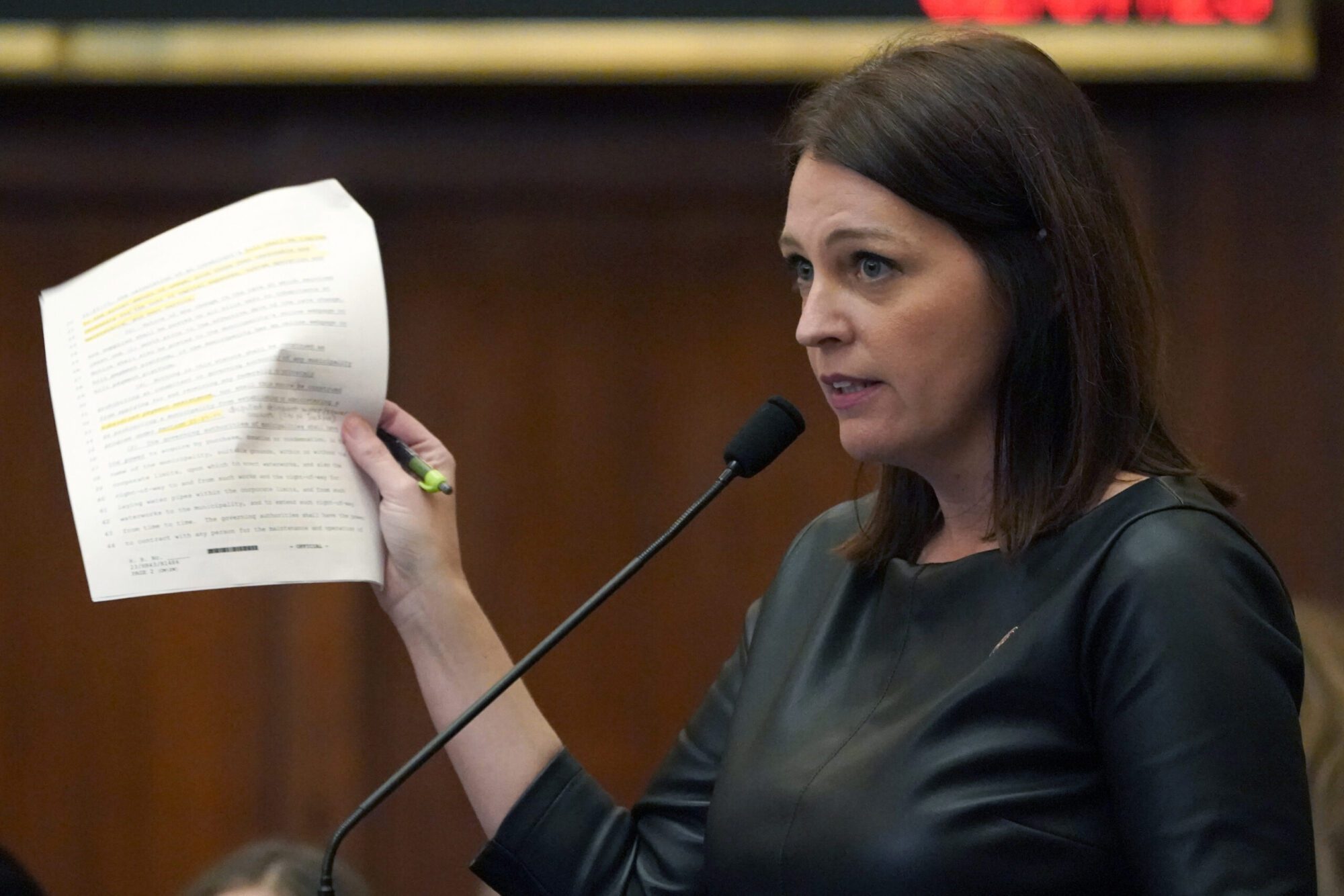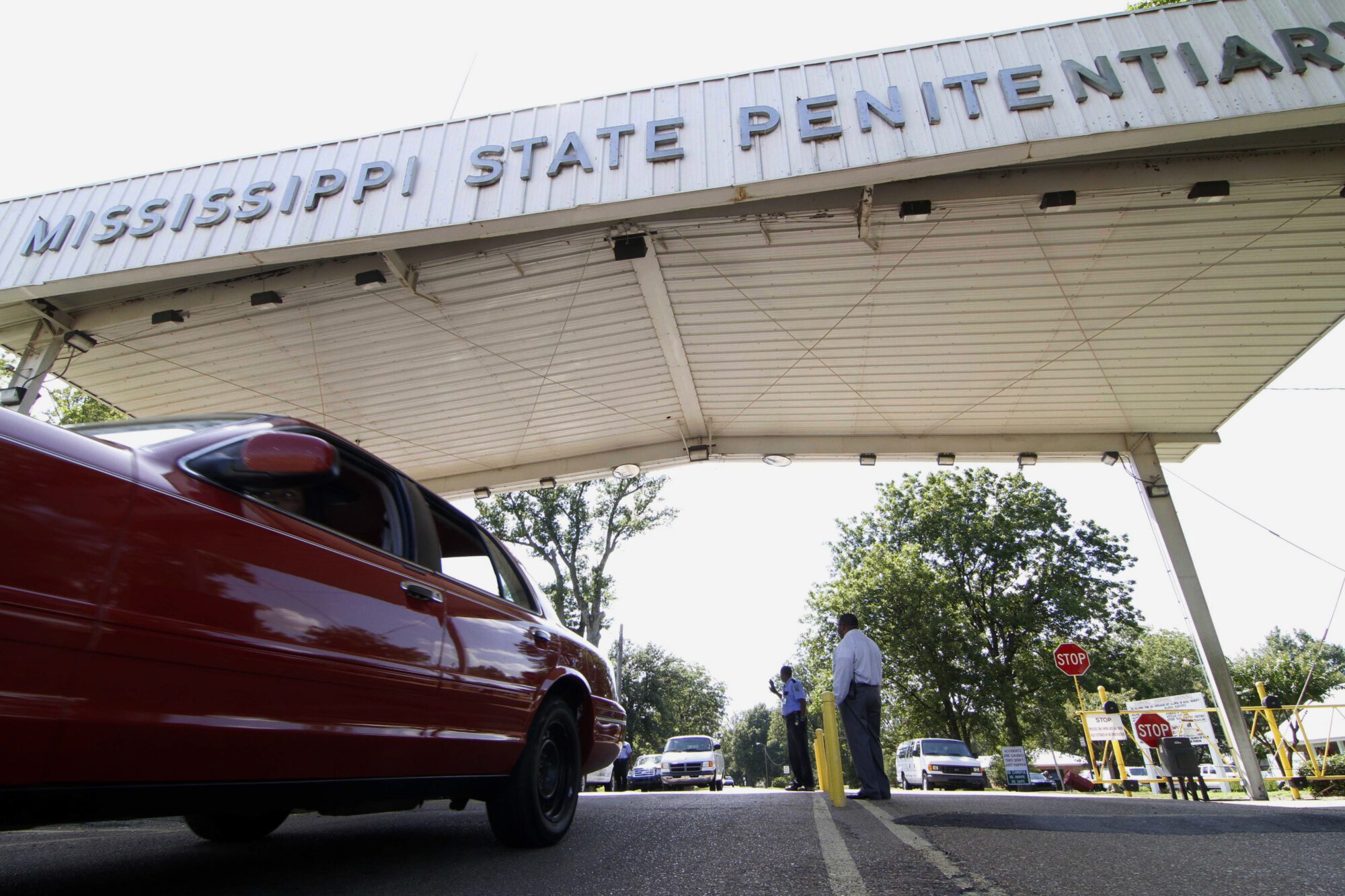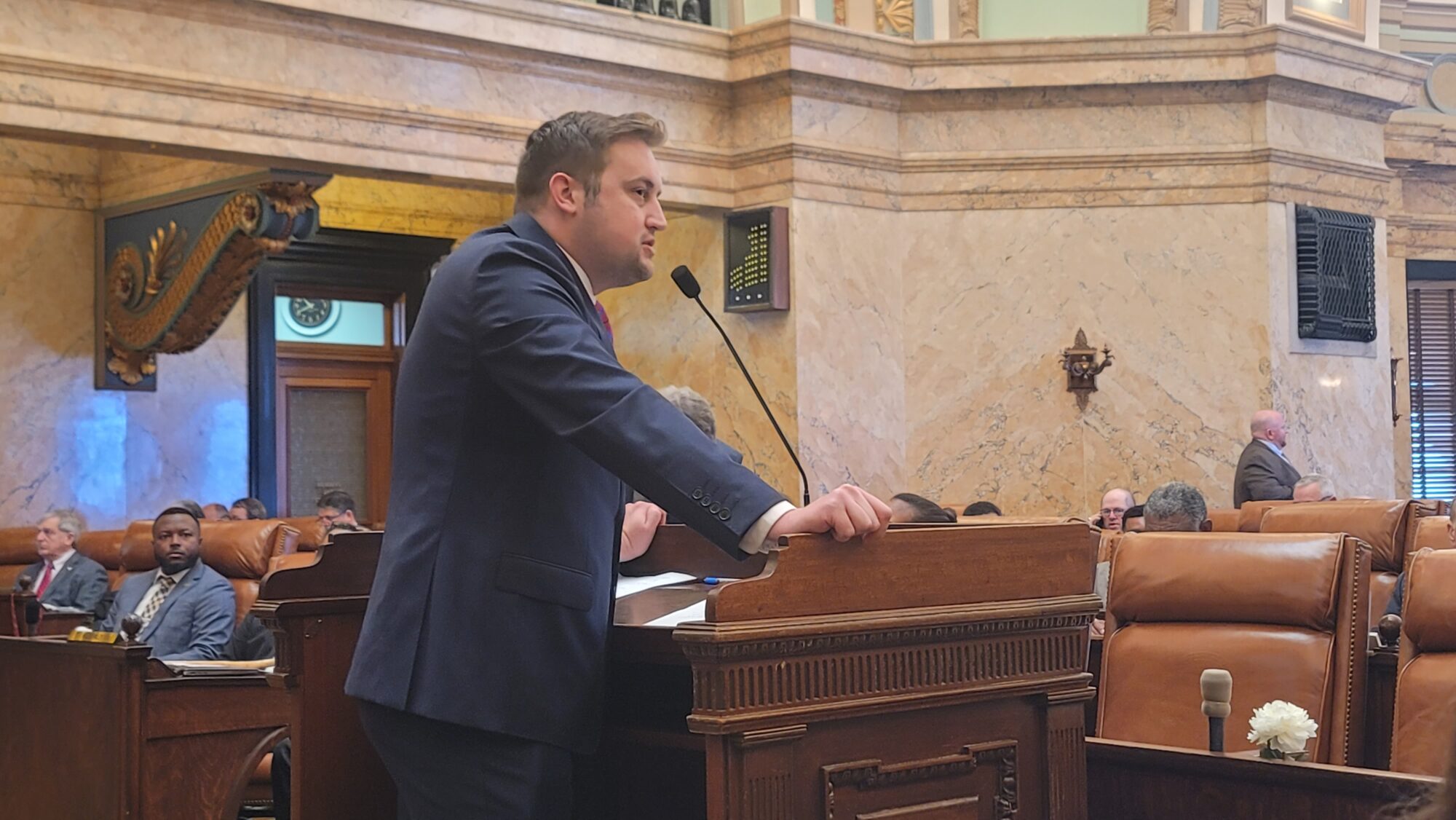
Rep. Shanda Yates, I-Jackson, presents legislation in House Chamber at the Mississippi Capitol, Tuesday, Feb. 7, 2023, in Jackson. (AP Photo/Rogelio V. Solis - Copyright 2023 The Associated Press. All rights reserved.)
- Lawmakers point to public safety, health risks, trash and negative impacts on communities as reasons to back the bill. Democrats say it penalizes the unhoused.
A measure aimed at addressing homeless camping in the state passed the Mississippi House on Tuesday after several amendments offered by Democrats failed.
The bill, HB 1203, would make it illegal for persons to camp on certain publicly owned property. It states, “No person may camp or create a campsite on any sidewalks, streets, sports fields, sports complexes, highways, alleys, roads, passageways or any other public property, except a public property that is otherwise designated for camping by a municipality, county, political subdivision or state, or by state law.”
Local and state law enforcement would be authorized to remove those camping on public property.
In addition, the legislation also reiterates that it is unlawful for any person or persons to willfully obstruct the free, convenient and normal use of any public sidewalk, street, highway, alley, or road.
State Rep. Shanda Yates (I), the bill’s author, said the legislation would protect the homeless and the public alike. However, a handful of Democrats said the bill penalizes the unhoused population.
“This bill is not moving people from one place to another,” Yates said, defending the bill.
Yates’ legislation notes that those camping on public property leave trash and blight behind when they move on. The bill says that the “trash, blight and odor on public property negatively affects tourism and economic development” in cities and counties.
Democrats listed several issues with the bill, including failing to offer housing solutions, mental illness intervention, and a list of other objections. One Democratic member said Republicans “have to have a plan to solve the issue, not just come up with something from their back pocket.”
Mississippi has the nation’s lowest homeless population, roughly 3.3 people per 1,000, centered mainly in the Jackson metro area and the Gulf Coast, according to the National Alliance to End Homelessness. Calls to homeless advocates in Jackson and Biloxi went unreturned Tuesday afternoon.
The legislation would allow authorities to “remove” unhoused people and their belongings from public property for 24 hours. The legislation reads, “The Legislature finds that public safety and health risks exist to persons who camp or otherwise reside on sidewalks, streets, highways, alleys, roads, passageways or other public property not specifically designated as a campsite. Accidents or intentional harm can be caused to the person camping by the pedestrian who crosses paths with the camper, a driver who drives too close to the camper or when things fall from motor vehicles onto the camper.”
The bill includes a section that allows items “having no apparent utility or monetary value and items in an unsanitary condition” to be discarded. Who is to make those determinations is not defined in the measure.
If a court finds the offender guilty, the person must pay a fine of no more than $50. The legislation does allow for alternative correctional methods “in the court’s discretion.” However, the alternative penalties “may not include a term of imprisonment but are otherwise as broad as permissible.”
The House bill passed the chamber by a vote of 71 to 34. Its fate in the Senate is unclear as it heads across the Capitol.
The U.S. Supreme Court ruled last term that municipalities may enforce homeless camping bans on public property. The high court overturned a lower court ruling that eviction violates the rights of the unhoused.
On Monday, an Oregon judge paused the Supreme Court’s ruling and issued a 14-day temporary order against the city of Grants Pass that brought the case.










